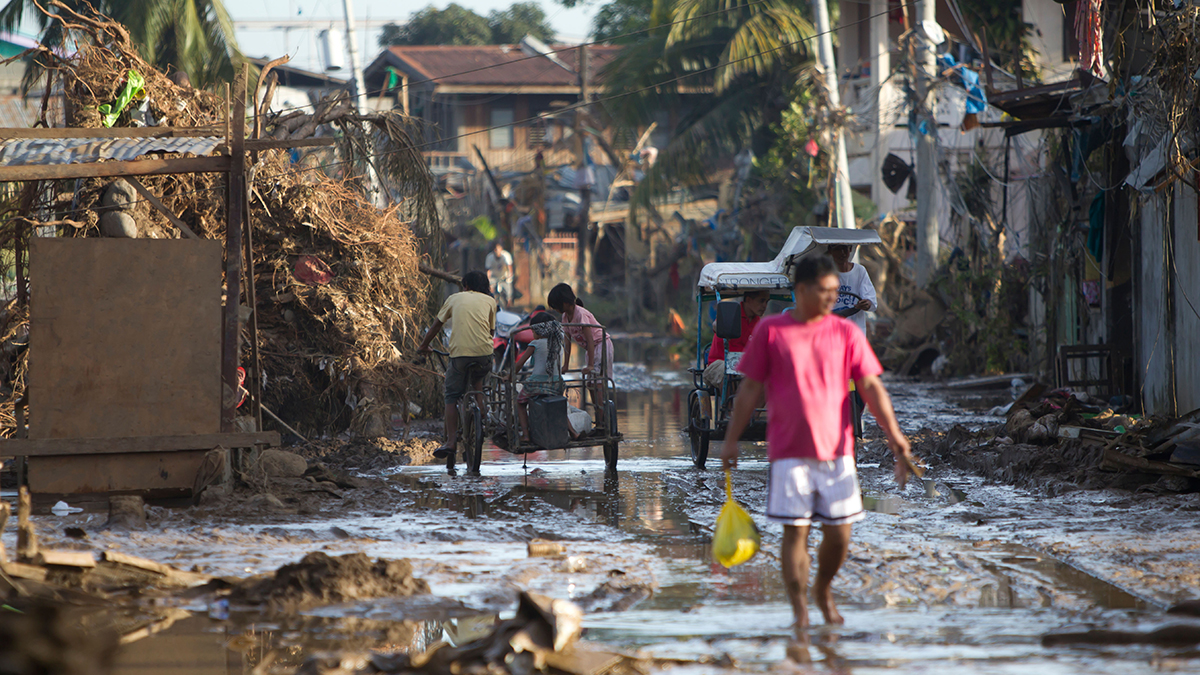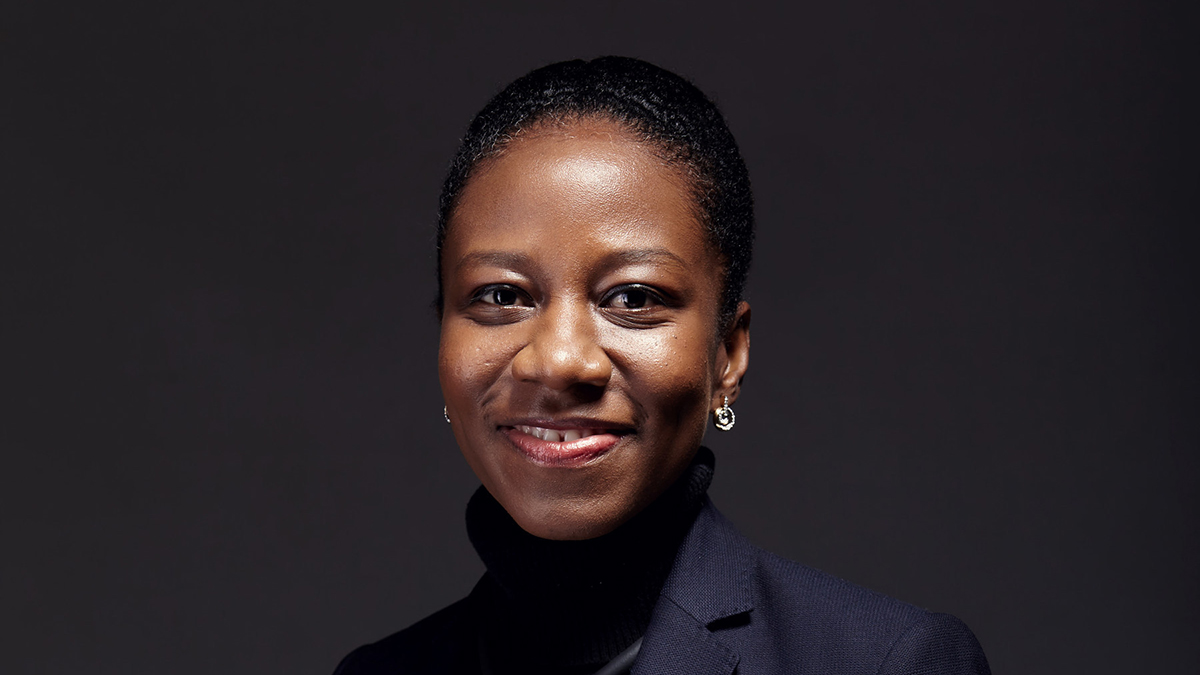Cop28 to 'elevate adaptation and resilience agenda'
‘We can talk about mitigation as being where we want to be in the future, but we need to be resilient and adapt to climate change now,’ Insurance Development Forum’s head of strategic partnerships and policy, Kipkorir Koskei, says
The UAE is working with the Risk-informed Early Action Partnership to enhance the use of finance and insurance to mitigate the impacts of climate change, the Insurance Development Forum’s head of policy says
The United Arab Emirates (UAE) aims to increase the focus of governments on adaptation and resilience at the UN’s next round of climate talks, according to Kipkorir Koskei, head of strategic partnerships and policy at the Insurance Development Forum (IDF).
In an interview with Insurance Day, Koskei says work is under way by the UAE, as host of Cop28, with the Risk-informed Early Action Partnership (Reap) on a charter titled Getting ahead of disasters. The document outlines principles for collaborative action to enhance the use of finance and insurance in managing climate-related risks.
“By promoting a comprehensive approach to managing climate risks and fostering collaboration across sectors and regions, the charter aims to protect vulnerable populations effectively,” Koskei says. “We can talk about mitigation as being where we want to be in the future, but we need to be resilient and adapt to climate change now. That’s the rallying cry across the field.”
As many as 189 million people in low-income nations are affected by extreme weather every year, meaning climate risk places a “disproportionate burden” on them. Koskei says: “The 20% loss in GDP in V20 [Vulnerable 20 Group] economies over two decades reveals the severe financial vulnerability that climate change can impose on the most vulnerable nations. Humanitarian needs are increasing, since 83% of disasters in the 2010s were climate-related, illustrating the growing demand for humanitarian assistance due to climate change.”
The IDF plans to deepen its global partnerships at Cop28, which begins on November 30, by collaborating with recipient governments, donor governments and institutional partners, and engaging climate actors, while progressing practical implementations aimed at climate vulnerable populations.
It aims to influence public policy by presenting insurance and its related risk management capabilities as an important component required to address the global climate crisis. The use of insurance capabilities “can and must” play a pivotal role in driving adaptation and resilience, as well as enabling greater economic stability, Koskei stresses.
“Urgent action is needed to reduce and address climate risks and contribute to a more resilient society and insurance is part of the solution,” he says.
Pre-arranged financing
A key policy topic at Cop28 will be pre-arranged financing, Koskei says, and how the insurance industry’s tools and knowledge could make financing flows more efficient and work for the most vulnerable.
Citing the Centre for Disaster Protection, he points out 55% of all crises can be predicted but just 2.7% of crisis funding is pre-arranged. This means there is a clear need to improve financial preparedness for disasters, he says. Anticipatory and early action are effective approaches to reduce disaster impacts and minimise humanitarian needs, he adds.
He continues: “Why is the world spending so much time on appeals with emotion-laden messaging, when we could act faster and cheaper? We need to change from a reactive system to a proactive one. That’s why the IDF, the World Bank and the UN are all saying we must make pre-arranged financing the norm and no longer the exception.”
Recent talks
The insurance industry is the “second line of defence”, after government, and if it is absent there is a “gaping hole”, Koskei says, referring to the protection gap in the developing world.
He highlights recent meetings to address that gap, including InsuResilience’s annual forum in June, which brought together members of the InsuResilience Global Partnership (IGP) and the wider resilience community to exchange knowledge on best practices and innovations.
The IGP was launched during Germany’s G20 presidency in 2017, as a joint G20 and V20 initiative. The V20 is an alliance of the finance ministers of the 55 countries that are most vulnerable to climate change. The IGP supports implementing programmes and projects related to climate and disaster risk finance and insurance (CDRFI).
“Why is the world spending so much time on appeals with emotion-laden messaging, when we could act faster and cheaper? We need to change from a reactive system to a proactive one… we must make pre-arranged financing the norm and no longer the exception”
Kipkorir Koskei
Insurance Development Forum
The IGP has facilitated the roll-out of innovative solutions across the globe and brought the importance of pre-arranged finance on the international policy agenda. However, it says the global CDRFI architecture remains fragmented, and the uptake of solutions slow, while losses and damages from climate change keep mounting.
Another recent meeting was the Africa Climate Summit in September, which focused on adaptation and resilience, renewable energy and sustainable development and financing for climate action.
“Those two meetings are examples of where we’ve been pushing the agenda for adaptation and resilience on the policy side,” Koskei says.
Better tools
At Cop27, the IDF launched its Global Risk Modelling Alliance (GRMA), which strives to correct the global imbalance in accessing data and tools to manage climate risk. Pakistan was announced at the climate talks in Egypt as the GRMA’s first partner country, but there have been more since, Koskei says.
The GRMA and the IDF’s Global Resilience Index Initiative sit alongside the IDF’s co-operation with the UN Development Programme (UNDP) and Germany’s federal ministry for economic co-operation and development (BMZ).
“We launched the GRMA because we want to partner with countries to close the data gap and we have had significant demand for it,” Koskei says. “In addition to Pakistan, we’re actively working on the GRMA in three more countries – Ghana, Costa Rica and Madagascar – and there are as many as 15 more waiting in the wings to join.”
He continues: “This demand is calling for the insurance industry’s capabilities, which historically seemed to be ringfenced in developed countries, as a gateway to financing for developing countries as well.”
It takes six to 12 months to get a GRMA project off the ground, he adds.
“A country needs to have a government entity, or sub-sovereign, dedicated to this to align the stars in terms of defining what the risk is to determine what the insurance product needs to look like.”
Vision 2025
The IDF’s sovereign and humanitarian solutions working group leads the Tripartite Programme, which brings the IDF, UNDP and BMZ together in the climate risk financing space. This is working to achieve the “Vision 2025” of the IGP – financial protection against climate and disaster risk for 500 million people annually by 2025.
According to Koskei, the Tripartite Programme serves 23 countries already and another 15 have expressed interest in learning about the risk solutions it offers. Koskei highlights the programme’s project in Mexico to develop a sovereign parametric insurance solution for climate-vulnerable smallholder farmers, supported by investments in long-term risk finance and insurance market development.
“This project took off quite quickly because we have insurtechs with very good distribution channels we can use,” he adds.
The series of departures by large insurance companies from the Net Zero Insurance Alliance (NZIA) this year is “unfortunate”, Koskei says, but reflects the radical approach needed to address climate change.
“It’s unfortunate the alliance has had issues from a legal and regulatory perspective, but that highlights it was pushing boundaries,” he continues, pointing out most NZIA partners are also members of the IDF.
“We’re trying to see how we can align our policies with our members’ initiatives, but it’s important to stress these initiatives aren’t a ‘Kumbaya’ moment for them, but hard and innovative work. And as the second-largest risk-sharing system after government, the insurance industry can’t be silent.”
Koskei concludes: “Cop27 showed the insurance sector is waking up to the idea of what it can offer. At previous Cops, you’d more likely bump into bankers than insurers, but this year I think we’ll see insurers, reinsurers and their brokers all occupying an equal amount of space as the finance community.”


